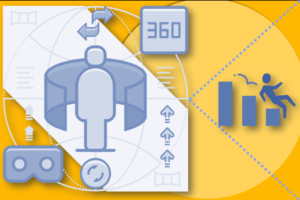Pedagogy of Productive Failure: Navigating the Challenges of Integrating VR into the Classroom
 The surge of popular interest in virtual reality (VR), largely driven by recent advances making the hardware and software for VR development and use accessible to average consumers, is showing all the signs of a durable trend. One of those signs is active uptake in the academy, both for research (where it was pioneered) and in the classroom (where its footing is less certain). To be sure, VR offers exciting and relatively underdeveloped pedagogical terrain for teachers looking to enhance their curricula by deploying technologies that might optimize the learning process. This article offers a critical reflection on one such effort, specifically, our academic team’s grant-funded digital humanities research project called Focused Associational Thinking-Virtual Reality (FAT-VR). The main premise of the project was to create a virtual reality environment where students could cultivate creative fluency in divergent thinking. Such competencies are thought to afford students with a means of “thinking things together” in the service of transdisciplinary inquiry and problem solving. This essay recounts how, as we attempted to “move forward” by harnessing VR, we often found ourselves going “backward” and “in circles” due to technological glitches and challenging student feedback. Putting our digital pedagogy project in conversation with phenomenological philosophy and critical theory, we offer a provocation on how forward motion can sometimes set us back pedagogically, and how disorienting experiences—even failure—can become productive.
The surge of popular interest in virtual reality (VR), largely driven by recent advances making the hardware and software for VR development and use accessible to average consumers, is showing all the signs of a durable trend. One of those signs is active uptake in the academy, both for research (where it was pioneered) and in the classroom (where its footing is less certain). To be sure, VR offers exciting and relatively underdeveloped pedagogical terrain for teachers looking to enhance their curricula by deploying technologies that might optimize the learning process. This article offers a critical reflection on one such effort, specifically, our academic team’s grant-funded digital humanities research project called Focused Associational Thinking-Virtual Reality (FAT-VR). The main premise of the project was to create a virtual reality environment where students could cultivate creative fluency in divergent thinking. Such competencies are thought to afford students with a means of “thinking things together” in the service of transdisciplinary inquiry and problem solving. This essay recounts how, as we attempted to “move forward” by harnessing VR, we often found ourselves going “backward” and “in circles” due to technological glitches and challenging student feedback. Putting our digital pedagogy project in conversation with phenomenological philosophy and critical theory, we offer a provocation on how forward motion can sometimes set us back pedagogically, and how disorienting experiences—even failure—can become productive.







